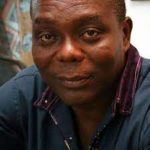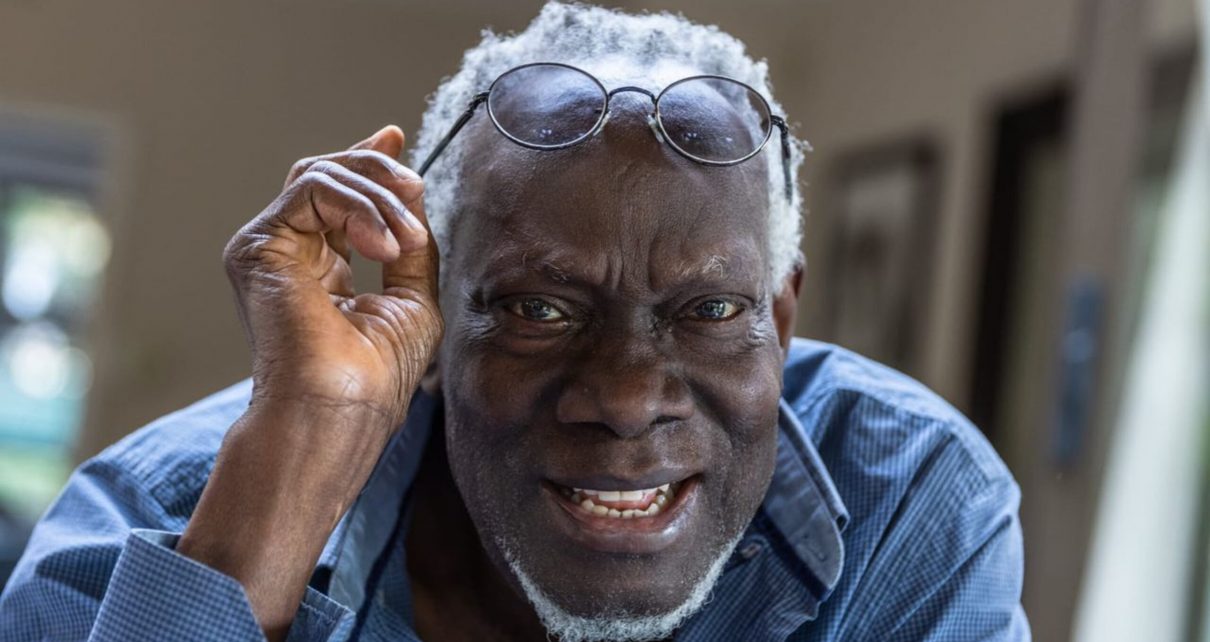
The news that came from Johannesburg, South Africa on July 19 was heartrending: Kole Omotoso is dead!
The lionized writer, Kole Omotoso, was my teacher at the then University of Ife, now Obafemi Awolowo University, for four years of my study there in the Dramatic Arts Department with Professor Wole Soyinka as Head of Department.
My first encounter with Kole Omotoso as a lecturer resulted in my handing over a manuscript to him when he asked us, his students, if any of us had “written something, maybe a play or novel.” That manuscript of mine was accepted by Macmillan, publishers of the popular Pacesetters Series, but I kept having some arguments with the publishing house until the Nigerian economy collapsed, and the novel could no longer be published. But that is another story…
Professor Bankole Ajibabi Omotoso was born in Akure on April 21, 1943, and was educated at Oyemekan Grammar School, Akure and the prestigious King’s College, Lagos, before taking his university degree at the University of Ibadan in 1969.
He was awarded a scholarship to study for a doctorate in Arabic Literature at the University of Edinburgh and the American University in Cairo, Egypt.
He married Marguerita Rice, a native of Barbados, before returning to Nigeria to teach in the Department of Arabic and Islamic Studies at the University of Ibadan.
With the establishment of the Department of Dramatic Arts at the University of Ife under the headship of Soyinka, Kole Omotoso transferred his services to Ile-Ife where we met.
He was a striking presence on campus with his Volkswagen Beetle car and Marxist predilection of his bearing. He was a prominent member of a Marxist group of intellectuals known as the Positive Review, including the fiery Biodun Jeyifo, Yemi Ogunbiyi, Femi Osofisan, GG Darah, Odia Ofeimun, etc.
Kole Omotoso’s first two novels, The Edifice and The Combat were published in the esteemed Heinemann African Writers Series in 1971 and 1972. He published a collection of short stories entitled Miracles in 1973 and initiated the experimentation in detective fiction in Nigeria through his 1974 publication of Fella’s Choice. His other books are Sacrifice, The Scales, To Borrow a Wandering Leaf, Memories of Our Recent Boom etc.
He also published two plays, namely The Curse: A One-Act Play in Four Scenes, and Shadows in the Horizon: A Play about the Combustibility of Private Property.
Kole Omotoso equally distinguished himself by authoring critical books, notably The Form of the African Novel: A Critical Essay; The Theatrical into Theatre: A Study of the Drama and Theatre of the English-Speaking Caribbean; Season of Migration to the South: Africa’s Crises Reconsidered; Achebe or Soyinka? A Study in Contrasts; and Woza Africa.
The most controversial book of Kole Omotoso is without question Just Before Dawn, a commissioned faction of the history of Nigeria he published in 1988. A former Nigerian Head of State threatened to sue him and his publishers. Hell was let loose in some security quarters. Kole Omotoso eventually left Nigeria.
He served as a visiting professor at the University of Stirling. He was also a visiting professor at the National University of Lesotho.
Kole Omotoso was a professor of English at the University of Western Cape, South Africa from 1991 to 2000. He served as a professor in the Drama Department of Stellenbosch University from 2001 to 2003. He did a stint with Elizade University upon his return to Nigeria.
He was an advisor to the Big Brother Africa television show which put him in some conflict with his guru Prof Wole Soyinka. He was the patron of the Etisalat Prize for Literature from 2013 to 2016. A prominent public intellectual, he wrote the weekly column “Trouble Travels” for The Guardian on Sunday.
Kole Omotoso shook up South Africa when he started appearing all over the media as the face of the leading telecommunications giant Vodacom. He got splashed all over the television and on billboards as the “Yebo Gogo Man”.
It is remarkable that when Kole Omotoso met Nelson Mandela, the legend described the Nigerian as “the most photographed man in South Africa.” Incidentally, in the television film Mandela and de Klerk, Kole Omotoso played the role of Govan Mbeki, Mandela’s fellow prisoner on Robben Island.
Kole Omotoso became the president of the Association of Nigerian Authors (ANA) after the founder Chinua Achebe.
A noteworthy fact about Kole Omotoso is that he lived to the old age of 80 after being a sickly child who was nicknamed “Mosquito” by his naughty schoolmates. In fact, some of us in the department at Great Ife called him “Lizard” – behind his back!
Kole Omotoso was the father of three children from his first marriage – Akin the influential filmmaker, Pelayo the engineer, and Yewande the novelist and architect who designed his father’s house in the Akure bush.
Kole Omotoso later got married to Bukky after the death of Marguerita, and the marriage is blessed with the children Taiwo and Olamiposi. The renowned author is also survived by his grandchildren Alula, Itai, Paida, Kehinde and Taiye.
Novelist, playwright, scholar, critic, public intellectual, raconteur, actor, loner, teacher, and multidimensional author, Kole Omotoso deserves celebration because the writer never dies.


